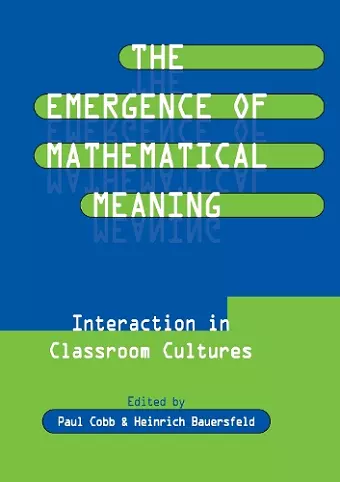The Emergence of Mathematical Meaning
interaction in Classroom Cultures
Paul Cobb editor Heinrich Bauersfeld editor
Format:Hardback
Publisher:Taylor & Francis Inc
Published:1st May '95
Currently unavailable, our supplier has not provided us a restock date

This book grew out of a five-year collaboration between groups of American and German mathematics educators. The central issue addressed accounting for the messiness and complexity of mathematics learning and teaching as it occurs in classroom situations. The individual chapters are based on the view that psychological and sociological perspectives each tell half of a good story. To unify these concepts requires a combined approach that takes individual students' mathematical activity seriously while simultaneously seeing their activity as necessarily socially situated. Throughout their collaboration, the chapter authors shared a single set of video recordings and transcripts made in an American elementary classroom where instruction was generally compatible with recent reform recommendations. As a consequence, the book is much more than a compendium of loosely related papers.
The combined approach taken by the authors draws on interactionism and ethnomethodology. Thus, it constitutes an alternative to Vygotskian and Soviet activity theory approaches. The specific topics discussed in individual chapters include small group collaboration and learning, the teacher's practice and growth, and language, discourse, and argumentation in the mathematics classroom. This collaborative effort is valuable to educators and psychologists interested in situated cognition and the relation between sociocultural processes and individual psychological processes.
"The book has a novel and highly rewarding structure that capitalises on the power of multiple perspectives....The book as a whole makes a unique and profound contribution to the theory of mathematics education."
—British Journal of Educational Psychology
ISBN: 9780805817287
Dimensions: unknown
Weight: 750g
318 pages